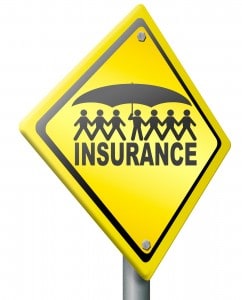Life Insurance to Consider as a Business Owner
Most insurance agents will tell you that if you have personal obligations, you should have life insurance to cover them. For example, an individual should carry at least enough life insurance to pay off all debts and provide income replacement until the last child enters college. Business owners most often have similar personal needs, but there are additional areas to cover on the business side. 
Key Member Insurance: A business needs to insure that it can continue operating in the event of the loss of a key member. Key members can be owners, partners, essential employees or a combination thereof. It is important to estimate the amount of money each person brings in to the company on a monthly and yearly basis, and acquire enough coverage to replace this income ideally for at least a year or more.
Insurance for Buy/Sell Agreements: Another area to consider for businesses, and particularly for partnerships, is who will own the shares of a deceased partner. For example, in many cases, it may be less than ideal for the spouse of one of the owners to suddenly become a full partner. To address such situations, many businesses draft buy/sell agreements. Issues sometimes arise, however, when the current owners lack the capital to buy back the portion of the company in which the spouse inherits. This is where life insurance can play a critical role. Combined with a buy/sell agreement, a life insurance policy, with the current owners as beneficiaries can provide the funds necessary to complete the transaction.
Group Life Insurance for Employees: Group insurance is a good benefit to offer to employees because the term variety is relatively inexpensive. For example, each employee would receive a certain amount of free term insurance, with the option to purchase additional insurance, usually at a lower rate than they would pay if it was purchased separately. The insurance stays valid only while individuals are employed with the company, however, so they would still need to have outside life insurance so they are covered when they change jobs.
Term vs. Whole-Life Insurance: When purchasing life insurance for owners, key members and/or for buy/sell agreements, it is often difficult to decide between term and whole life insurance. Both types of insurance have advantages and drawbacks. Term is far less expensive, but it expires after a certain period and does not gain cash value. Whole life is permanent as long as premiums are paid. And in addition to the death benefit, a whole life policy becomes an asset that grows in value, can be borrowed against, and in cases of emergency, cashed out.
To decide which type of insurance is right for your business, it is best to speak with an independent insurance broker. An independent broker can consult with you to assess your needs and develop the best plan to address those needs. In addition, they can shop among several of the top insurers in your state to find the best policy to fit your goals and budget.




